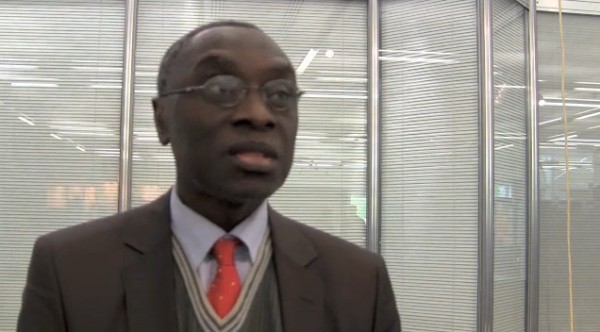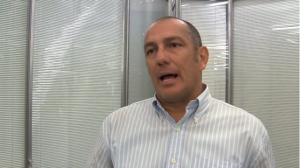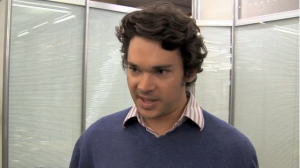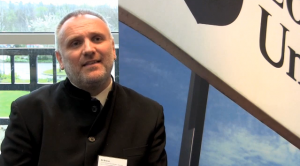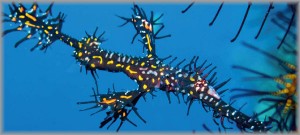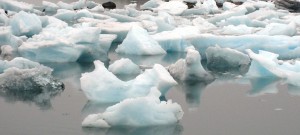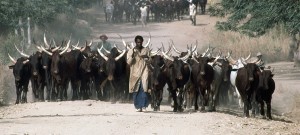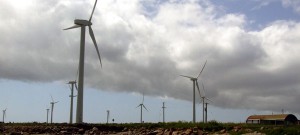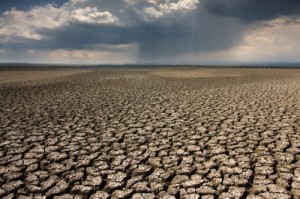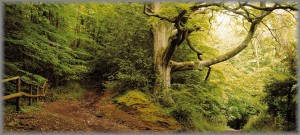Climate science
LCEDN VIDEO: The role of the private sector in developing capacity in Nigeria
Professor Eli Jidere Bala from the Energy Commission in Nigeria spoke to RTCC about the country’s potential for renewable energy, and the role the private sector will have in making it a reality.
LCEDN VIDEO: Combining the traditional and the modern for climate resilience
Iván Azurdia Bravo from the Guatemalan non-profit Rijatzul Q’ij talks to RTCC about the need to consider both modern technology and traditional skills and values when adopting climate resilience projects in Central and Southern America.
LCEDN VIDEO: Putting communities at the heart of energy projects
Speaking at the first conference of the Low Carbon Energy for Development Network, Practical Action’s Ewan Bloomfield talks about the importance of having the community at the heart of them.
LCEDN VIDEO: Multi-disciplinary approaches needed to low-carbon research
Speaking at the first conference of the Low Carbon Energy for Development Network, Ed Brown, the network’s Co-coordinator warns that the UK must break away from technological determinism.
Just 15% of Antarctic ice shelf remains
Latest European Space Agency data shows continued disintegration of Larsen B ice shelf.
Photo of the week #12: The threat of warming oceans
This week’s photo of the week comes from the ocean depths in Bali’s coral reefs.
Research breakthrough: CO2 rises caused warming that ended last ice age
Compelling new evidence suggest that rises in CO2 caused much of the global warming responsible for ending the last ice age, strengthening the link between CO2 and rising temperatures today.
Climate change warming oceans for more than a century
New study comparing modern temperature records with data from 1870 suggests the world’s oceans have been warming for more than 100 years.
New research finds some corals could survive climate change
El Nino warming cycle survivors give new clues and improve prospects for some coral environments.
Planet under Pressure ends with six recommendations for Rio+20
Conference ends with declaration that science must take a central role in shaping and influencing policy discussions ahead of Rio+20.
Nordic nations sign non-CO2 emissions pact
Nordic environment ministers have signed a declaration to increase efforts on reducing non-CO2 emissions.
New study recommends seven steps to sustainable farming
New report outlines seven measures that will enable world to feed population of 9 billion by 2050 while reducing agricultural carbon emissions
SEI: Scarcity of metals could hamper low-carbon development
Stockholm Envrionment Institute warns that low-carbon development could be hit if business and policy makers don’t address resource scarcity concerns.
New report: West Antarctic ice shelves tearing apart
New study published in the Journal of Glaciology finds rifts along the West Antarctic ice shelves causing the shelves to lose their grip and break off into the sea.
World could see 3 degree warming by 2050
BBC project examining thousands of simulations finds world could see three degree tempurature rise by 2050.
New report: Climate change could lead to increase in extreme weather
New research looks to highlight the role climate change has at turning extreme weather events into the record breaking events.
Newborn seal pups vulnerable to climate change
New study suggests that in their first few months of life, fur seal pups could be particularly vulnerable to climate change as they use more and more energy to keep warm.
Photo of the week #10
This week’s photo of the week celebrates World Forestry Day with this stunning picture from a forest in the heart of England.
Previous 2°C warming triggered 20m sea level rises
Rock and soil samples from 3 million years ago match predicted modern-day warming with larger than expected rises in sea level.
Audio: Why bottled water is bad for you and the planet
Water entrepreneur Edwin Broni-Mensah speaks to RTCC about his company GiveMeTap, which aims to re-introduce consumers to tap-water.
